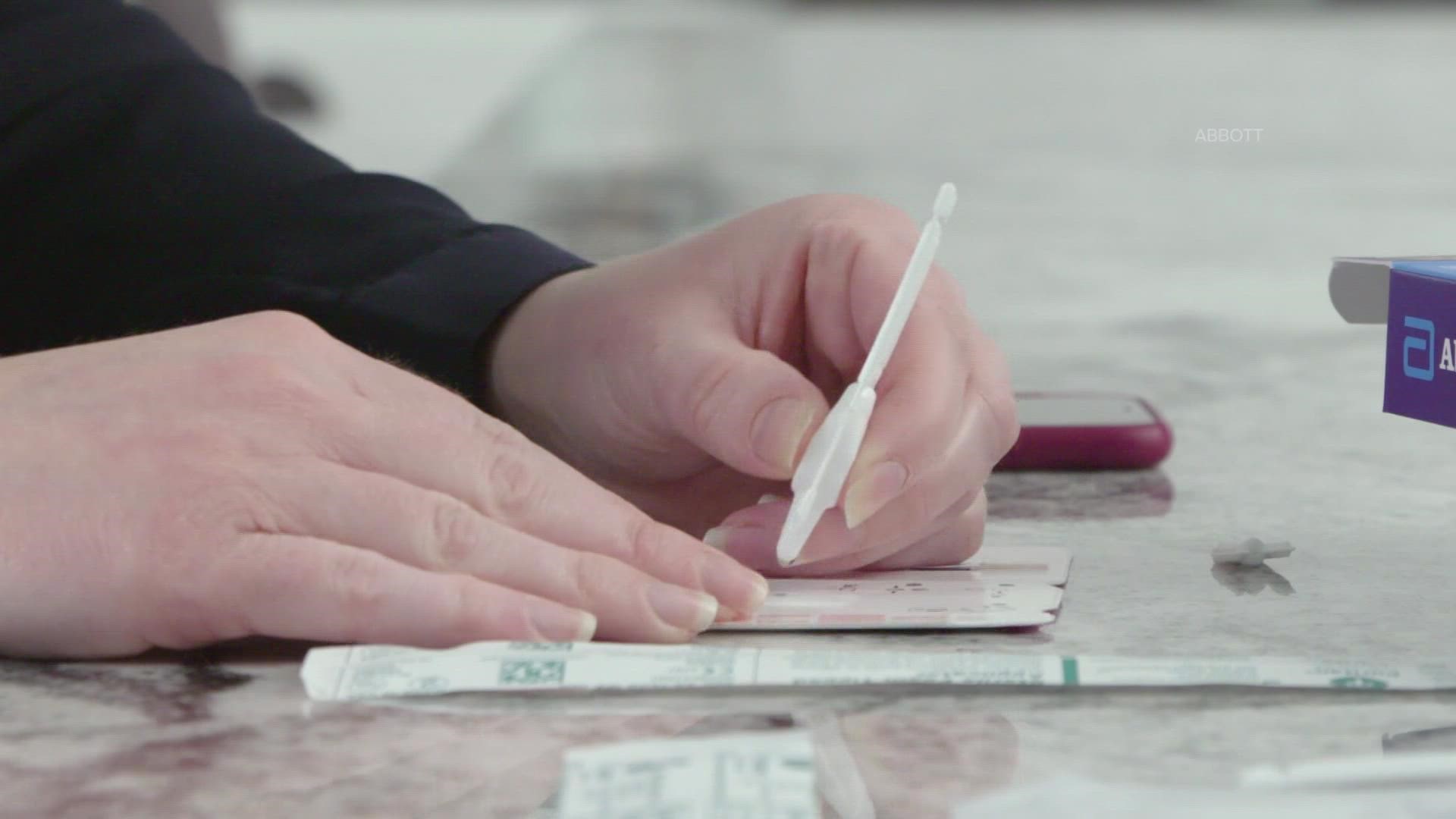AUGUSTA, Maine — During Maine's COVID-19 briefing on Wednesday, the state addressed several topics, including masks versus the omicron variant, at-home rapid antigen tests, and new CDC guidelines for quarantine and isolation.
TIME TO UPGRADE YOUR MASKS
Maine Center for Disease and Control Prevention Director Dr. Nirav Shah said Wednesday that due to the contagiousness and transmissibility of the omicron variant, cloth masks should likely be the last resort for people looking to protect themselves against the virus.
He said he still wants to study the topic more. Previous studies have shown cloth masks — which do limit the spread of COVID somewhat — are less effective than surgical masks or KN 95 AND N95 masks.
"As we learn more about omicron and how quickly it can be transmitted, upgrading your mask, if you haven't done so already, is something to start thinking about," Shah said.
One of the issues is the accessibility of these types of masks: they can be more expensive. When it comes to school students or staff, Shah said the state is still looking into providing those higher-level masks.
EFFICACY OF AT-HOME RAPID ANTIGEN TESTS DETECTING OMICRON
The agency did not specify which types nor how much less sensitive at-home tests are.
Shah said he has not been told nor seen data around which tests are less sensitive. He also said there is no recent data to show how much less effective they are.
A U.S. CDC study from almost a year ago found that BinaxNOW tests detected the virus in 64% of symptomatic people compared to PCR testing.
Abbott, the company that makes the BinaxNOW tests wrote in a statement:
"We've conducted lab analyses and tests on the omicron variant from a live virus, including from the first U.S. omicron case, and BinaxNOW detected the virus in all tests we performed at equivalent sensitivity as other variants. Additionally, our data from customer use has not shown any change in test performance."
Shah said these rapid antigen tests are still useful.
"This is not an 'if you've got a test, check it out.' That is not what's been said. It's more of a 'this is something we need to study and better quantify so that maybe recommendations if they need to change can be done so in the future.'" Shah said. "I think it would be premature to change any guidance around the use or utility of rapid test at this time, something we need to watch further."
The state does not get the results of at-home tests. In a statement from September, Maine CDC spokesperson Robert Long told NEWS CENTER Maine:
"Unless the individual using an at-home test reports the results to us, that result would not be included in our data reporting. As noted on the Maine CDC COVID-19 webpage, the testing information posted there reflects results reported electronically because results reported via paper or other methods often do not include negative results. The absence of which affects positivity rate calculations.
Anyone who gets a positive result from an at-home test should stay home, contact their medical provider, and call 1-800-821-5821."
NEW CDC QUARANTINE AND ISOLATION GUIDANCE AND KIDS
The new guidance from the U.S. CDC that shortens the quarantine and isolation times for people who test positive or are a close contact of someone else who tests positive for COVID-19 will soon have language directed to the nuances around kids.
Many of the new recommendations involve a person's vaccination status, including if the person has received a booster. Kids under 16 cannot get a booster at this time, making the rules a bit unclear for school students.
Shah said he was conferring with Maine Department of Education Commissioner Pender Makin and several school district superintendents to see how best to implement these guidelines for students.
"There is a move afoot more nationally to rethink the approach to quarantine in light of increasing levels of vaccination as well as pooled testing which has been a success in Maine," Shah said. "So we are rethinking what quarantine and contract tracing look like, but we want to do so after seeking the advice and consultation, the operational input from superintendence on the ground."
Shah said that children ages 16 and 17 do not need to have the booster to avoid the quarantine period if they are in close contact.
Regardless of age or vaccination status, anyone should isolate if they test positive for COVID.
The CDC is also rethinking the quarantine and isolation guidance for all.
"They don't necessarily need to quarantine for the same period of time provided they are wearing a mask," Shah said. "If they test positive, that isolation period is shortened from 10 days down to 5 days."

